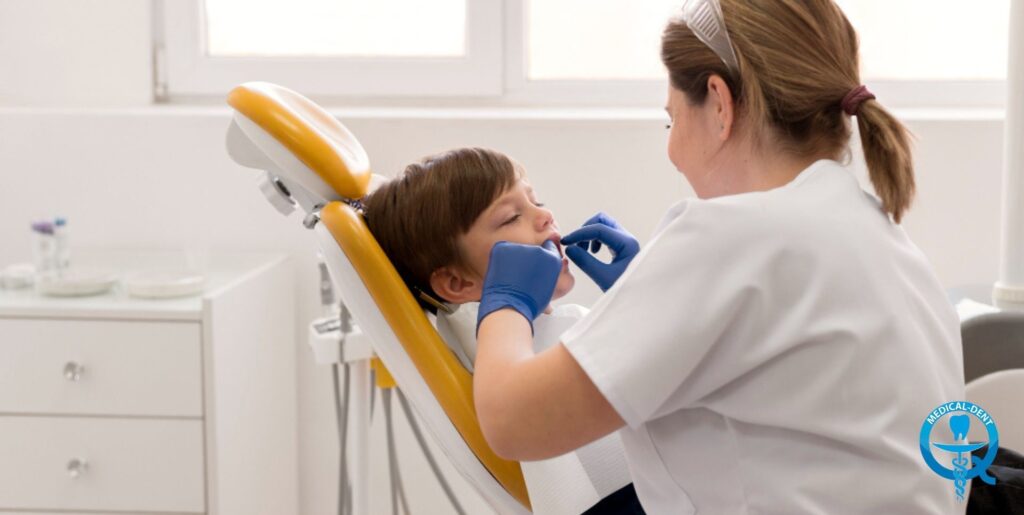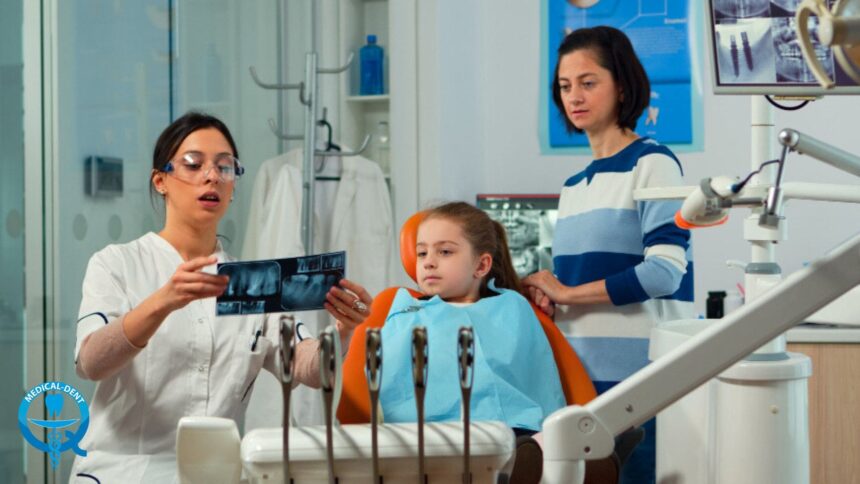The removal of deciduous teeth is always a last resort. Deficiencies in a toddler's teeth always have consequences, such as crooked teeth or malocclusion, which in turn are associated with future orthodontic treatment. Therefore, root canal treatment of deciduous teeth can be a necessity. And when this is the case and what it looks like - please see the article.
Treatment of deciduous teeth - when does it make sense?
The answer is - always. Untreated millipedes mean numerous unpleasant consequences for the child: pain, sleep and speech problems and future malocclusion. The latter additionally involve lengthy orthodontic treatment.
Of course, prevention is always better than cure, But sometimes it can be unavoidable. The reason for this is the deciduous teeth themselves, which are less mineralised than permanent teeth and therefore more susceptible to damage and decay.
We wrote more about the prevention and treatment of deciduous teeth in an article with a similar title "Treatment of deciduous teeth".
In principle, the treatment of deciduous teeth is no different from that of permanent teeth and, similarly, root canal treatment may sometimes be necessary.

Root canal treatment of deciduous teeth
Root canal treatment, also known as endodontics, aims to remove infected or damaged tissue from inside the tooth and implant a filling.
As with permanent teeth, yes with deciduous teeth it is a matter of stopping a worsening infection and avoiding extraction. However, due to the size and structure of deciduous teeth, the procedure itself can be somewhat less complicated.
In principle, it looks similar. After administering anaesthesia, the dentist removes infected tissue from inside the tooth. He or she then cleans and disinfects the canals and fills them with a special material to prevent re-infection. Finally, he or she places filling.

How much does a root canal treatment for millipedes cost?
Unfortunately, there is still a belief among some parents that milk teeth do not need to be treated. This is a very big mistake that will cause the little one a lot of problems and pain in the future.
As we mentioned, prevention is best. How? Take care of your child's daily oral hygiene, limit sweets and be sure to visit the dentist's office as soon as the first teeth appear. Then the dentist will not be associated with pain. You can read more about this in our article "How to prepare your child for a visit to the dentist". By following the advice contained therein, even possible root canal treatment of deciduous teeth will not be a problem.
And back to the cost. Because root canal treatment of deciduous teeth is no different to the treatment of permanent teeth the prices are the same. Thus root canal treatment of incisors is an expense of £220, premolars £270, molars £330, and filling prices depending on size are £130-£140.
At this point, we would like to remind you that at our practice you can take advantage of the instalment system and spread the entire treatment into instalments that are convenient for you. Importantly, the first 12 months are zero interest. You can read more about this in our article "Instalment scheme for dental treatment in the UK".
IMPORTANT! Our instalment system is safe and regulated by Financial Conduct Authority (FCA number 619628).
Finally, if you have questions or would like to make an appointment contact get on with it.

